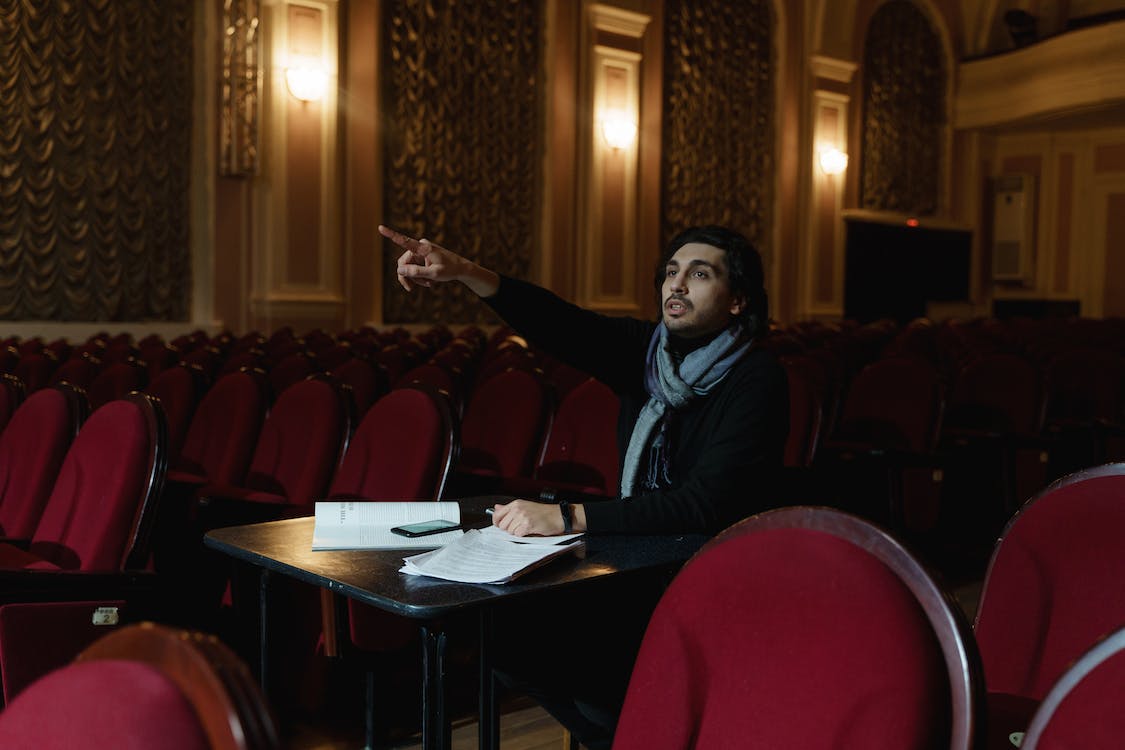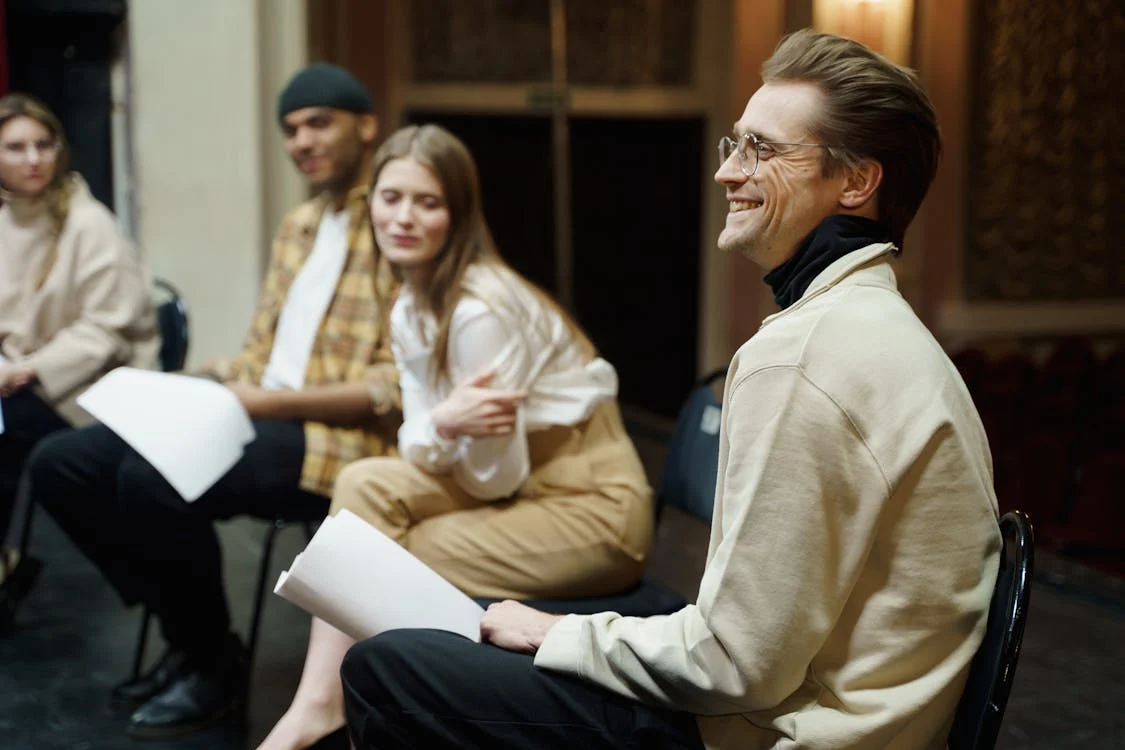Question:
How Long Should an Audition Take?
(By Jim Webb)
 (Photo: Cottonbro | Pexels)
(Photo: Cottonbro | Pexels)
How long should an audition take?
While there is no one-size-fits-all answer, the length of an audition depends on several factors, including the type of audition, the medium, the role being cast, and the preferences of casting directors.
In many cases, casting directors aim to keep auditions short and efficient. They often have to see hundreds of actors in a short period of time, especially in larger cities like Los Angeles or New York. Given this volume, initial auditions rarely exceed 5-10 minutes, unless there is something particularly unique about the role that requires more time.
RELATED: How Do You Get an Audition?
Actors should be prepared for auditions to move quickly, making the most of their time in front of the casting team. This means being well-prepared with material, making strong, clear choices in their performances, and remaining flexible to adjust on the fly.
Type of Audition
 (Photo: Cottonbro Studio | Pexels)
(Photo: Cottonbro Studio | Pexels)
Monologue or Scene Auditions
If an actor is asked to perform a monologue or a scene during an audition, this will typically last anywhere from two to five minutes. Actors are often expected to come prepared with a short piece (monologue) or to read from a provided script (sides). In most cases, casting directors prefer concise auditions to get a quick sense of the actor’s range, energy, and fit for the role.
Cold Read Auditions
In cold read auditions, actors are handed a script and given little time to prepare. These auditions can vary in length but usually last 5-10 minutes, as the casting team wants to see how well an actor can quickly interpret material.
Commercial Auditions
Commercial auditions are often fast-paced, typically lasting 1-2 minutes. The actor might be asked to deliver a single line, perform a quick action, or demonstrate a reaction. In commercial casting, it’s all about appearance, presence, and personality.
Theater Auditions
 (Photo: Cottonbro | Pexels)
(Photo: Cottonbro | Pexels)
Theater auditions can be longer than film or TV auditions, as they often involve performing monologues or singing a song. These sessions may last anywhere from 5 to 10 minutes for a first audition, but callbacks or more extensive auditions could take much longer. In some cases, theater auditions might involve a series of readings, singing, or dancing, stretching the audition time to 15-30 minutes or more.
Film and TV Auditions
These auditions are generally shorter than theater auditions, lasting around 5-10 minutes. The camera is often involved, and casting directors look for subtlety and on-camera presence. Since film and TV prioritize nuanced, smaller gestures, casting teams tend to make decisions quickly after seeing a few short takes.
Callback Auditions
If an actor is called back for a second or third audition, the process may become more extensive. Callbacks are often longer because casting directors will want to see how actors respond to direction, interact with other performers, and perform under varied conditions. Callback sessions can last anywhere from 15 minutes to over an hour depending on the depth of the material being explored and the number of actors involved.
Lead Roles
Audition times for lead roles tend to be longer than those for smaller or supporting roles. Casting directors may require actors auditioning for leads to perform multiple scenes, and they may take extra time to evaluate the actors’ chemistry with other performers. These auditions can last 10-30 minutes or more.
Supporting or Minor Roles
Auditions for minor roles are usually shorter, often lasting around 2-5 minutes. These parts don’t require as much exploration of character depth, so casting directors typically make decisions more quickly.
Preparation, preparation, preparation!
 (Photo: Joel Muniz | Unsplash)
(Photo: Joel Muniz | Unsplash)
Given the brevity of most auditions, preparation is key to making a strong impression in a short amount of time. Actors should focus on:
1. Memorizing material (if possible) to ensure fluidity.
2. Making bold choices that showcase their interpretation of the character.
3. Rehearsing multiple variations of the scene or monologue to be ready for direction or adjustment.
4. Arriving on time and being ready to go when called, as auditions are often fast-paced.
Auditions can range in length, but most initial auditions are relatively short, lasting anywhere from 1 to 10 minutes. Callbacks and auditions for more complex roles can extend to 15 minutes or more. Actors should be prepared for these varying lengths by ensuring they make a memorable impression in whatever time they’re given.



